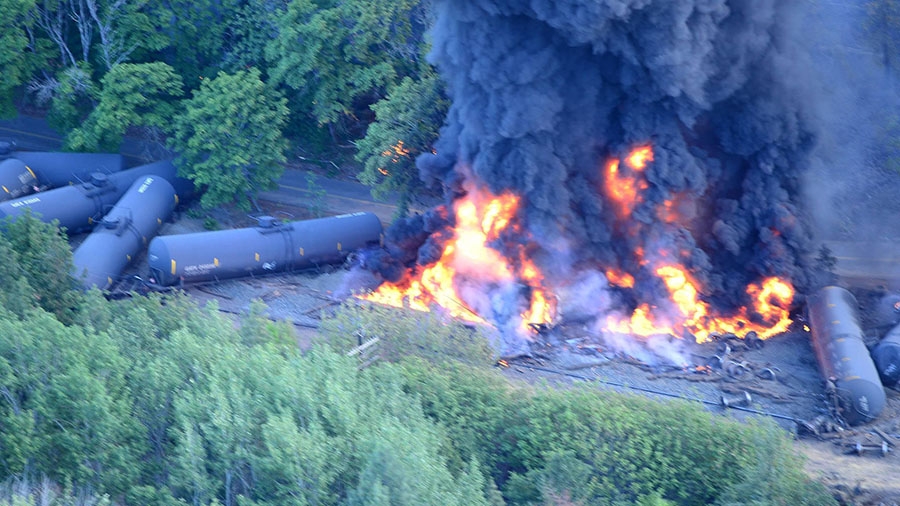Calls in Oregon are growing for better oil train safety regulations and infrastructure as the state gains prominence as a gateway for transportation of crude oil destined for export overseas.
Rep. Barbara Smith Warner, D-Portland, called for a unified West Coast safety response to the transportation of crude oil during a panel at the annual Pacific Northwest Economic Region conference in Portland this week.
Warner sponsored House Bill 2131 introduced in the 2017 legislative session, which would have required the state environmental regulator to create an oil spill and emergency response plan and increase funding for safety training.
The bill was a response to the crude oil derailment in the town of Mosier along the Columbia River in June 2016. Warner said the accident, where 47,000 gallons of crude oil spilled, exposed a lack of coordinated contingency planning for oil by rail spills in Oregon that are as comprehensive as in Washington and California.
Washington and California have more well-established safety plans because they have refineries and can access fees for planning. Oregon is solely a transit state for crude by rail and has no refineries.
The legislation was criticized for not allowing the public access to crude by rail continency planning information. After amendments were made to the bill to improve public access, the bill lost industry support and was sent back to committee.
RELATED STORY: Q&A with president of Western States Petroleum Association
Warner said she plans to reintroduce the bill in the 2018 legislative session. “We need to have a unified West Coast response to shipping hazardous materials,” she said.
The legislation to improve oil train safety may be hampered by efforts to improve public access to information about the crude by rail system.
Robin Rorick, group director of midstream and industry operations at the American Petroleum Institute, said the industry needs to be “judicious about information that reaches the public.”
“Our concern is that information could be used against the community,” said Rorick.
The oil industry is ramping up pressure to improve energy infrastructure in the Pacific Northwest as the amount of crude oil transported from North Dakota to the west coast for export increases.
The U.S. is now the world’s largest producer of oil and natural gas thanks to hydraulic fracturing, which has increased production of crude oil by 80% since 2005.
Much of that increased production is exported overseas. Petroleum exports are expected to increase 50% by 2030, according to the American Petroleum Institute.
The Pacific Northwest is known as an “energy island” because it lacks energy infrastructure to process its own energy supply.
The controversial Vancouver Energy Terminal is an attempt to relieve that pressure. The proposed terminal at the Port of Vancouver would create infrastructure for unloading crude oil into tanks for export by ship.
Jared Larrabee, general manager for Vancouver Energy, said the Port of Vancouver is an ideal location for the terminal because of the investments in deepening the Columbia River channel to improve access to large vessels.
Permitting for the project has been held up because of local opposition to the fossil fuel project, leading to increased tension between industry and the state officials that permit these projects.
Larrabee said delays to the permitting will prevent the community and port from benefitting from the project.
“Crude oil will be here for a long time. There is a significant need on the West Coast for that capacity,” he said.




